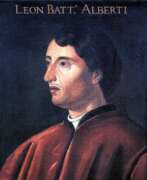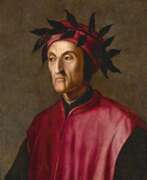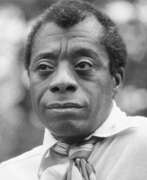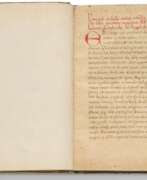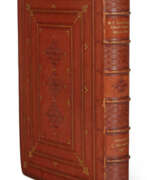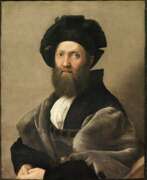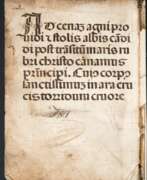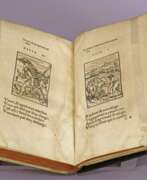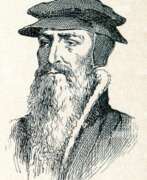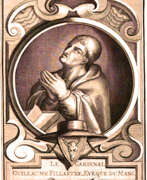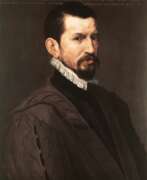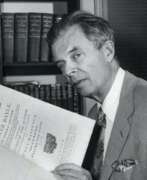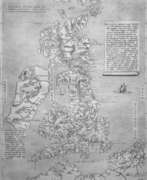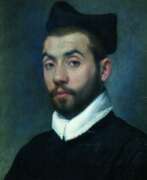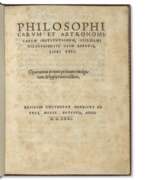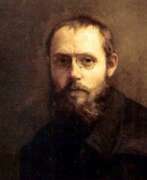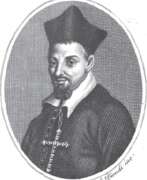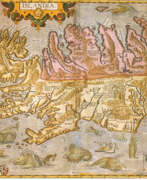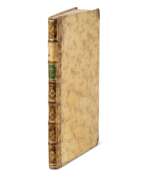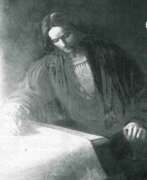Humanists
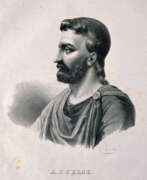

Cornelius Gerardi Aurelius, also called Goudanus, was a Dutch humanist scholar, writer, and historian.
Aurelius was a permanent canon (monk) of the Augustinian monastic order and is one of the first humanists of the Netherlands in the 16th century. He wrote poetry, historiography, hagiography, political and theological works. Aurelius also corresponded with many of the famous men of his day, especially Erasmus.
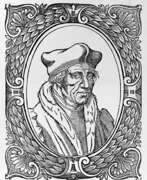

Jacobus Faber Stapulensis or Jacques Lefèvre d'Étaples was a French humanist, Catholic theologian, philosopher, music theorist and mathematician. He taught at the University of Paris. He is best known as the first translator into French of the complete text of the Bible.
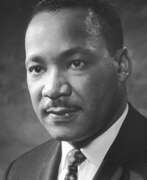

Martin Luther King Jr, born Michael King, is an American preacher, leader of the Black Civil Rights Movement in the United States, and Nobel Laureate.
His father was the famous Baptist missionary and leader of the Civil Rights Movement Martin Luther King Sr. (1899-1984). He studied medicine and law at Morehouse College, then earned a bachelor's degree in theology at Crozer Theological Seminary in Pennsylvania, followed by a doctorate in theology at Boston University. And beginning in 1955, King Jr. became active in the community with protests over segregated seating on public buses.
On September 20, 1958, the first assassination attempt was made on Martin. Isola Ware Curry, a mentally unstable Harlem woman, stabbed King with a metal letter opener at a department store where he was signing copies of Stride Toward Freedom as part of a tour to promote the book.
Martin Luther King, Jr. was a driving force behind such watershed events as the Montgomery Bus Boycott and the 1963 March on Washington, which resulted in the historic Civil Rights Act (1964) and Voting Rights Act (1965). He was a prominent African American leader of the civil rights movement of the 1950s and 1960s. In 1964, Martin Luther King, Jr. was awarded the Nobel Peace Prize for his activism for civil rights and social justice. King also actively opposed the Vietnam War, calling for an end to the bombing, negotiations, and the withdrawal of U.S. troops.
On April 4, 1968, King was assassinated by gunfire on the balcony of the Lorraine Motel in Memphis. James Earl Ray, a petty criminal who had escaped from a maximum-security prison a year earlier, was blamed for the murder. Years after his death, Martin Luther King Jr. became the most famous African-American leader of his era. Today, he has a reputation as a visionary leader who was deeply committed to achieving social justice through nonviolent means. In 1983, President Ronald Reagan signed into law a U.S. federal day in King's honor; it is observed nationwide on the third Monday in January.
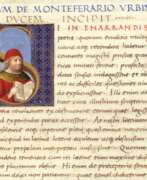

Georgius Merula, also Giorgio Merlani di Negro or Georgius Merula Alexandrinus, was an Italian humanist scholar, philosopher, philologist and historian of the Renaissance.
He held the position of professor and taught in Milan and Venice. But became known for being the first to print the works of Plautus (1472), Scriptores rei rusticae, Cato, Varron, Columella, and Palladius (1472). He also published commentaries on parts of Cicero (especially De finibus), Ausonius, Juvenal, Curtius Rufus, and other classical authors. Merula also labored in historical research and described several significant battles.
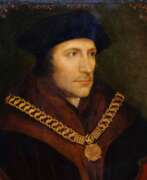

Thomas More was a British lawyer, humanist philosopher, writer and statesman.
As the son of a London judge of the Royal High Court, Thomas studied at Oxford and then in London with the best lawyers. More also studied the works of the ancient classics, improved in Greek and Latin languages, composed his works. In 1497 More met and became friends with Erasmus of Rotterdam, became a member of his humanist circle.
In 1510-1518 Thomas More was deputy sheriff of London, and in 1517 entered the service of the king, becoming one of the most effective and trusted civil servants of Henry VIII. He acted as his secretary, interpreter, speech writer, chief diplomat, counselor, and confidant. He was knighted in 1521, became Speaker of the House of Commons in 1523, and in 1525. - Chancellor of the Duchy of Lancaster. Around 1515. More wrote The History of Richard III, and in 1516 he published his most significant work, Utopia, in which he described an imaginary ideal state.
Thomas More opposed the divorce of King Henry VIII from Catherine of Aragon and refused to recognize the king as the head of the Church of England, as required by the Act of Supremacy in 1534. For his refusal, he was beheaded in the Tower of London in 1535. 400 years later, in 1935 Thomas More was canonized by the Catholic Church, and in 1980 the Church of England recognized him as a "saint and hero of the Christian Church."


Francesco Petrarca was an Italian poet, the founder of European humanism, and one of the greatest figures of the Italian Proto-Renaissance.
Petrarca studied at the University of Montpellier, then at the University of Bologna, in 1330 entered the service of Cardinal Giovanni Colonna as a chaplain. Then he made various pilgrimages, in 1353 settled in Milan at the court of Archbishop Giovanni Visconti, and carried out important diplomatic missions. Petrarca spent the last years of his life in the village of Arquà near Padua.
Since 1337 Petrarca began to write literary works: these were historical poems in Latin and lyric poems in Italian. In 1327 Francesco saw Laura for the first time, undivided love for which was the main source of his poetry. Laura was for him an object of adoration and pure platonic love. Despite the fact that they saw each other only a few times and were not really acquainted, Petrarca carried this feeling through his life.
Passionate about ancient culture, Petrarch deciphered and commented on the manuscripts of Cicero, Quintilian and others. He opposed medieval scholasticism interest in the earthly purpose of man, argued that the nobility of man depends not on the nobility of origin, but on his virtue. Petrarca highly valued the mind and creative abilities of man, and these humanistic ideas found vivid expression in his lyrics, revealing the inner world of man. Petrarca's work laid the foundation for the formation of Italian humanism. He also dreamed of the unification of Italy, the revival of the former greatness of Rome.
Francesco Petrarca had one of the richest libraries of his time, where ancient Roman writers, poets, historians, philosophers were represented. He was one of the brightest representatives of the culture of the Renaissance. Petrarca's works are characterized by perfection of form and musicality of verse, which played a significant role in the development of European poetry. Among his works are the poem "Africa" about the Second Punic War in Latin, allegorical pastoral eclogues "Bucolics" (1346/1357), a book of songs "My Italy", "Noble Spirit", sonnets, etc.


Luigi Pulci was an Italian poet and humanist writer and diplomat.
For many years Pulci lived under the patronage of the Medici family and was a member of their circle of poets and artists, and later, after Lorenzo the Magnificent came to power, entrusted him with various embassies and diplomatic missions. At the age of about 40, Pulci entered the service of the northern condottiere Roberto Sanseverino and remained with him until his death.
Pulci wrote many different works, but is known primarily as the author of one of the outstanding epics of the Renaissance, the Morgante (Morgante or Morgante Maggiore). This chivalric-romantic parody and comic epic was first published in Italian in 1481. Its plot is based on the adventures of the knight Orlando and his squire, the giant Morgante. Pulci's unpretentious narrative and sharp satire immediately made "Morgante" very popular, but also aroused the anger of influential enemies like the Dominican friar Girolamo Savonarola, who called to burn copies of the book on the "bonfires of vanity".
Pulci's work influenced the French satirical writer François Rabelais (1494-1553).
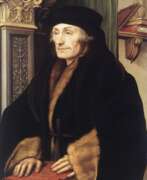

Desiderius Erasmus, also Erasmus of Rotterdam, or simply Erasmus (Latin: Desiderius Erasmus Roterodamus, Dutch: Gerrit Gerritszoon) was a Dutch humanist, philosopher, and the greatest scholar of the Northern Renaissance.
He was illegitimate and brought up under the name Gerhard Gerhards, later in Latin his name was dubbed Desiderius Erasmus. At the age of 13, the boy was sent to a monastery, where he later took the ministry. Erasmus read a lot, improving in Latin and Ancient Greek, studied oratory. A few years later he received the post of secretary to the bishop of the French city of Cambre. From 1493 to 1499 Rotterdam lived in Paris, then in London he was introduced to Thomas More, John Fisher, and John Colet.
Erasmus was constantly on the move, rarely staying in one place and traveling frequently between the Netherlands, Britain, France and Italy. In Turin he earned a doctorate in theology and was received by the Pope, then taught ancient Greek and theology at Cambridge. He corresponded with the rulers of various countries, popes and cardinals, and with statesmen, answering their questions of a scientific, political, and philosophical nature. As a true humanist, Erasmus of Rotterdam adhered to the ideas of a scientific spirit that favored research and true knowledge.
Among the merits of Rotterdamsky study of religious texts from a scientific position, critical interpretation of theology. Erasmus was able to lay the groundwork for historical-critical study of the past, especially in his studies of the Greek New Testament and the church fathers. His educational writings helped to replace the old school curriculum with a new humanistic emphasis on the classics.
In 1501, Erasmus produced a religious and ethical treatise, The Arms of the Christian Warrior, published in 1504. His work entitled "The Praise of Folly" was reprinted 40 times only during the author's lifetime, the book has been translated into all popular languages of the world. The series "Conversations in a Simple Way" (1518-1533) is among the most popular books on pedagogy. Erasmus promoted respect and care for children, opposing violence and corporal influence. He also promoted the idea that education should be compulsory for everyone.
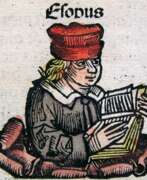

Hartmann Schedel was a German humanist, medical scientist, historian and chronicler.
Schedel was the first to compile a world chronicle, the so-called Visual History of the Earth from the Creation of the World to the 1490s, known as Schedelsche Weltchronik (Schedel's World Chronicle). It was published in 1493 in Nuremberg. About 600 woodcuts for this book were created by the artists and engravers Michael Wolgemuth (1434-1519) and Albrecht Dürer (1471-1528). The illustrations depict biblical scenes, family trees, portraits of famous personalities, and fairy tale or legendary creatures. However, the main ones here were maps of the world, Germany and Central Europe.
Hartmann Schedel was one of the first cartographers to use machine printing. He was also a renowned collector of books, artworks and engravings by old masters.
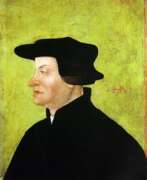

Huldrych or Ulrich Zwingli was a leader of the Reformation in Switzerland, born during a time of emerging Swiss patriotism and increasing criticism of the Swiss mercenary system. He attended the University of Vienna and the University of Basel, a scholarly center of Renaissance humanism. He continued his studies while he served as a pastor in Glarus and later in Einsiedeln, where he was influenced by the writings of Erasmus.
